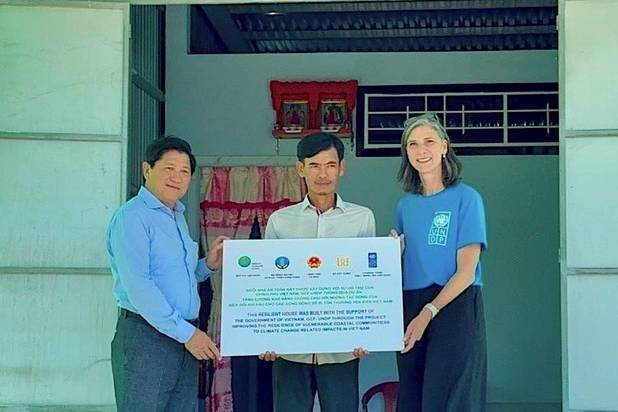More than 4,000 hectares of mangrove forests have been restored, early warning systems have been established in 24 high-risk communes, and over 5,000 storm- and flood-resilient houses have been built, benefitting over 25,000 people in areas frequently affected by storms and floods.
These achievements result from the seven-year project implementation “Enhancing the Resilience of Vulnerable Coastal Communities to the Impacts of Climate Change in Viet Nam”. The project was carried out by the United Nations Development Programme (UNDP) in partnership with the Government of Viet Nam across seven climate-vulnerable coastal provinces and cities: Nam Định, Thanh Hóa, Quảng Bình, Huế, Quảng Nam, Quảng Ngãi, and Cà Mau. Implemented from 2017 to 2024, the project had a total budget of $42 million, funded by the Green Climate Fund (GCF).
The project significantly contributed to developing 10 government and ministerial-level policies on climate change adaptation. It supported the Ministry of Natural Resources and Environment in integrating climate change response into national strategies and plans, leading to the issuance of Circular No. 06/2023/TT-BTNMT on July 23, 2023. It also provided technical guidelines and online learning materials for incorporating disaster and climate risk reduction into socio-economic development planning, reflected in Circular No. 10/2021/TT-BKHĐT issued by the Ministry of Planning and Investment on December 22, 2021.

In the field of disaster risk management, besides establishing early warning systems in high-risk communes, the project trained over 62,000 officials and residents—nearly 50% of whom were women—enhancing community capacity and awareness in disaster response and minimizing losses during emergencies.
Ms. Ramla Khalidi, UNDP Resident Representative in Viet Nam, emphasized UNDP’s commitment to continue supporting Viet Nam in building sustainable communities and ensuring that no one is left behind in the fight against climate change. Building on the project’s outcomes, stakeholders plan to intensify the implementation of the National Community-Based Disaster Risk Management Program, optimizing databases and software developed through the project. They also aim to expand the integration of the 24 early warning stations across seven provinces into the national early warning network. This will serve as a foundation for developing insurance products related to agricultural risk management.